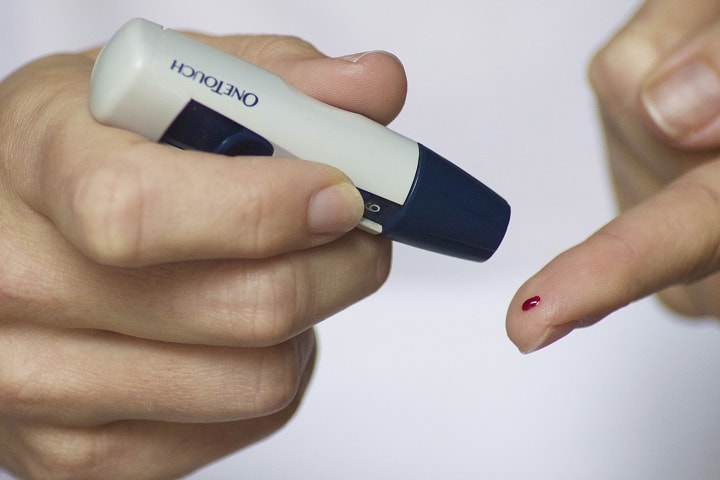Food mean so much more to us than nutrition. We think about food as a part of our culture, as a comfort in hard times, and as a way to reward ourselves for a job well done. This way of thinking about food can make it difficult to determine how it affects us physically.
The pastry given as a thank you from a client in the morning may create an unexpected slump in energy in the early afternoon. If you suffer from a disease that is affected by blood sugar levels, like diabetes, the physical effects of food are even more prominent in your life.
Here’s what you need to know about how diet affects blood sugar levels and some tips for developing a healthy lifestyle.

Table of Contents
How Does Food Affect Sugar Levels?
When you eat something, your body pulls out energy from the food as glucose that goes into your blood. Therefore, everything you eat impacts your blood sugar levels.
If you don’t eat for some time, your blood sugar levels will drop. If you eat a calorie-packed meal, your blood sugar levels will spike.
Monitoring how food affects your sugar levels is one of the most important aspects of managing energy spikes and slumps throughout the day. Furthermore, it is essential for managing diabetes.
How Do Sugar Levels Affect You?
Optimal levels of blood sugar are consistent, without dramatic dips or spikes. When your blood sugar is steady, you’ll experience consistent energy throughout the day and are unlikely to experience strong cravings for food or hunger.
If your blood level spikes, you’ll feel a burst of energy and may even feel jittery. This is common after sugary foods and drinks or a load of fast-absorbing carbohydrates like many energy drinks has.
If your blood level drops, you’ll feel lethargic or sleepy and may feel cravings for food or sugar to help you feel more energetic.
What Does The Glycemic Index Have to do With Sugar Levels?
The glycemic index is a measurement for how certain foods affect your glucose levels. It works specifically for carbohydrates and is not used for foods that are without carbohydrates.
- Low glycemic foods are digested more slowly, which tends to maintain optimal levels of blood sugar.
- Medium glycemic foods are digested quickly, but not so quickly as to cause dramatic spikes in blood sugar.
- High glycemic foods are likely to cause blood sugar spikes and therefore drops down the road.
Three classifications of glycemic index
- High: Greater than 70
- Mid: 56 – 69
- Low: Below 55
What Does a Low Glycemic Diet Do?
Whether you are experiencing diabetes or worried that you may experience it down the road on your current diet, a low glycemic diet was made to help you.
If you are sick of experiencing energy spikes and slumps throughout your day or if you experience hunger cravings, low glycemic diets may also be helpful for you. A low glycemic diet stabilizes your blood sugar so that you feel energized throughout the day and don’t experience hunger cravings.
Think About How Your Diet is Affecting Your Blood Sugar Level
Whether you’re ready to stick to a low glycemic diet or not, it is a good idea to keep in mind how foods affect your blood sugar level. Starting your morning with low glycemic food makes it less likely that you’ll have a slump later in the day.
If you are experiencing an energy slump, food in the medium level of the glycemic index can help you to recover without causing a spike. Understanding how diet affects blood sugar levels is helpful, regardless of your diet.




